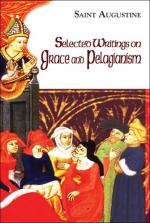|
This section contains 1,180 words (approx. 4 pages at 300 words per page) |

|
PELAGIANISM. The term Pelagianism designates both the teachings of Pelagius, a fourth-century Christian monk, and any teaching that minimizes the role of divine grace in salvation. Few of the ideas associated with Pelagianism in the latter sense can be directly traced to Pelagius, but because he was opposed by the great North African bishop Augustine, whose influence on Western Christian theology has been far-reaching, he has come to stand for an insufficient and erroneous doctrine of grace. Some have suggested that Pelagianism was the creation of Augustine and not Pelagius. But it was Pelagius's views on the Christian life, his moral rigorism, his high regard for the law, and his emphasis on discipline and the human will that laid the foundation for the controversy that gave birth to what has come to be known as Pelagianism.
Pelagius (d. 418), a monk from Britain, was living in Rome at the...
|
This section contains 1,180 words (approx. 4 pages at 300 words per page) |

|


